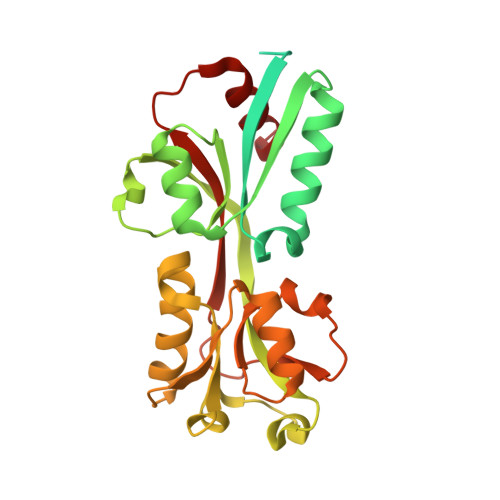A genetically encoded fluorescent biosensor for detecting itaconate with subcellular resolution in living macrophages.
Sun, P., Zhang, Z., Wang, B., Liu, C., Chen, C., Liu, P., Li, X.(2022) Nat Commun 13: 6562-6562
- PubMed: 36333306
- DOI: https://doi.org/10.1038/s41467-022-34306-5
- Primary Citation of Related Structures:
7W06, 7W07, 7W08 - PubMed Abstract:
Itaconate is a newly discovered endogenous metabolite promoting an anti-inflammatory program during innate immune response, but the precise mechanisms underlying its effect remains poorly understood owing primarily to the limitations of available itaconate-monitoring techniques. Here, we develop and validate a genetically encoded fluorescent itaconate biosensor, BioITA, for directly monitoring itaconate dynamics in subcellular compartments of living macrophages. Utilizing BioITA, we monitor the itaconate dynamics in response to lipopolysaccharide (LPS) stimulation in the context of modulating itaconate transportation and metabolism. Moreover, we show that STING activation induces itaconate production, and injection of AAVs expressing cytosolic BioITA into mice allows directly reporting elevation of itaconate level in activated macrophages derived from LPS-injected mice. Thus, BioITA enables subcellular resolution imaging of itaconate in living macrophages.
- CAS Key Laboratory of Infection and Immunity, CAS Center for Excellence in Biomacromolecules, Institute of Biophysics, Chinese Academy of Sciences, Beijing, 100101, China.
Organizational Affiliation:


















